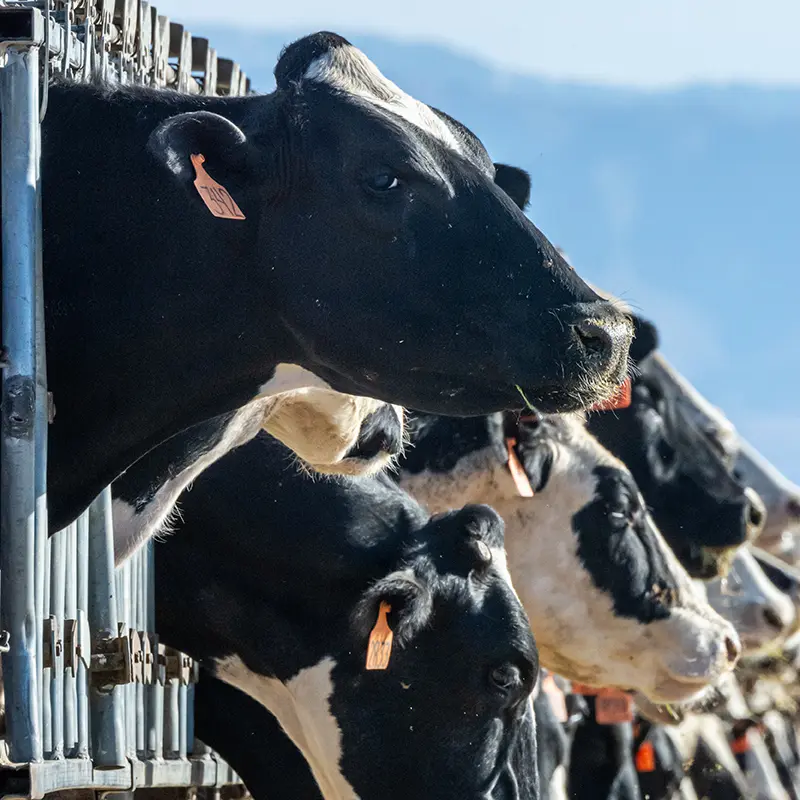Livestock Applications
Rapid-myco technologies is developing a truly transformative diagnostic platform for the rapid detection of important and often life-threatening mycobacterial infections of livestock.


Johne’s disease
Johne’s disease, caused by Mycobacterium avium subsp. paratuberculosis (MAP), is a chronic, globally endemic contagious disease of the intestinal tract that primarily affects cattle (both dairy and beef), sheep and goats, as well as other ruminant species and occasionally humans.
The significant economic consequences of MAP infection include reduced milk yield, slower weight gain and death. MAP has also been linked to Crohn’s disease in humans, which is debilitating and in extreme cases life-limiting for disease sufferers and costly to treat for healthcare providers.
RAPIDvMAP offers the speed and simplicity of ELISA screening assays (≤8 hrs to result) with the sensitivity and specificity of MAP culture (the ‘gold standard’ method), and detects only viable MAP present in milk, blood and faecal samples.
It is, therefore, a game-changing and potentially disruptive technology that could act as the catalyst for the establishment of mandatory national Johne’s control and eradication programmes around the world.
Clinical Applications
Read more about the applications for Human Tuberculosis and Leprosy.
Bovine Tuberculosis
Globally, greater efforts have been made to control Bovine Tuberculosis (bTB) caused by M. bovis due to its potential as a zoonotic disease. This has caused an increase in the number of diagnostic tests carried out on dairy and beef animals. The primary screening test for M. bovis in cattle is the single intradermal comparative cervical tuberculin (SICCT) test. This is commonly known as the tuberculin skin test, which is used throughout the world in its various formats to screen cattle, buffalo, bison, other animals, and people for TB. It is the internationally accepted standard for detecting M. bovis infection in live animals.
The specificity of the tuberculin skin test is good, but its sensitivity is poor and is reported at between 52%-100%, with an average sensitivity of 80%. This means that potentially, in every 100 M. bovis positive cattle, the skin test will ‘miss’ 20 animals (i.e., give false negative result), which will then go on to infect other cattle in the herd and in other herds.
RAPIDbTB will offer the same superior specificity and sensitivity of detection of M. bovis as that achieved for MAP, and will enable the rapid and accurate, same day screening of cattle, thus potentially revolutionising global efforts to control and eradicate bovine TB. As for all applications of the PhMS-qPCR technology, RAPIDbTB will only detect viable, active M. bovis, i.e., it will identify those cattle which are actually infectious and a transmission threat to other cattle and humans.

